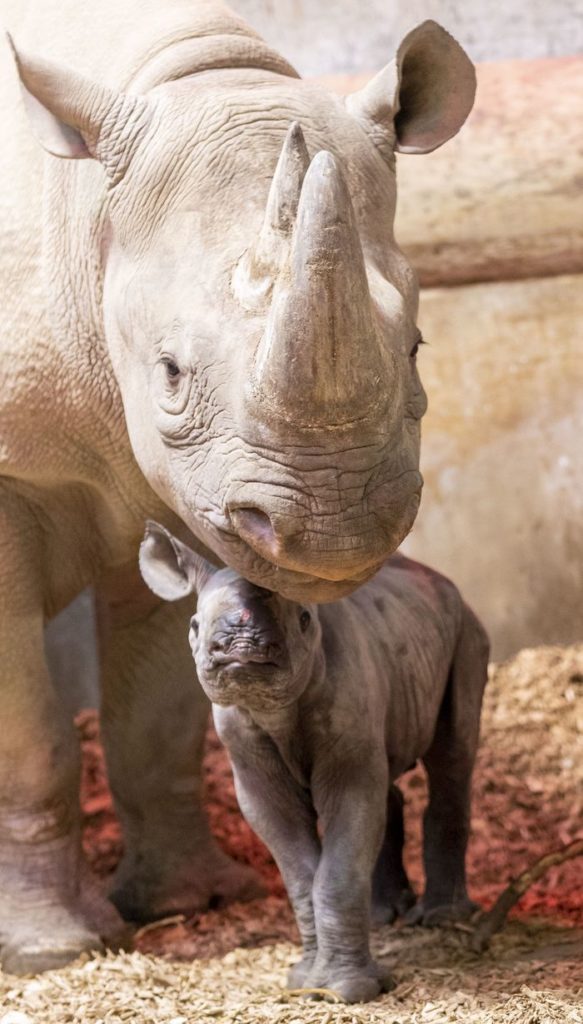
Critically endangered Eastern black rhino born at Folly Farm
Born just ten minutes after Dakima’s waters broke, the calf made his appearance at 4:37am and within a couple of hours was standing up, following Dakima around the enclosure and suckling from mum.
Eastern black rhinos are classed as critically endangered due to poaching and loss of habitat. There are thought to be fewer than 650 left in the wild and around 87 in zoos across Europe, including our new addition.
Six-year-old eastern black rhino, Dakima, arrived here in May 2017 as part of a breeding programme and met the love of her life, nine-year-old male Nkosi. Mating rhinos can be unpredictable, but their relationship blossomed and she conceived in October 2018.

First time mum Dakima has really taken to motherhood and is seen here protecting her precious calf

Zoo keepers Jack Gradidge and Rachel Puncher announce the arrival
Along with other zoos across Europe, we’re part of a breeding programme to help increase the numbers of Eastern black rhino in captivity and, ultimately, the wild.
Watch this amazing CCTV footage of the birth and baby’s first steps.
The next steps for our keepers are just to keep an eye on Dakima and make sure the baby stays healthy and gets everything he needs from mum. Our aim is always to interfere as little as possible and let nature take its course. Nkosi will be a bit of an absent father, but that’s perfectly normal as male rhinos don’t have anything to do with their offspring in the wild so it’s unlikely we’ll introduce him to the baby – his job is done.
In the wild rhino calves can stay with their mums for up to four years, after that there’s a possibility this baby could one day be released into the wild to help boost population numbers – or move to another zoo to continue the breeding programme in Europe. It’s exciting to be playing our part in helping to safeguard these amazing animals for future generations.

A monumental birth for Folly Farm and more importantly for this critically endangered species
We believe the calf weighs between a healthy 30-45 kg. Our keepers will monitor mum and baby closely over the coming weeks in our off-display area. We’d really appreciate your patience during this important bonding time for Dakima and her son. When we’re satisfied they’re ready they’ll be back on public display, the welfare of our animals always comes first.
We know how excited you’ll all be by this amazing news so make sure you follow us for plenty of baby updates!
Facebook – Folly Farm Adventure Park and Zoo
Instagram – @FollyFarmWales
Twitter – @FollyFarmWales
Help keep news FREE for our readers
Supporting your local community newspaper/online news outlet is crucial now more than ever. If you believe in independent journalism, then consider making a valuable contribution by making a one-time or monthly donation. We operate in rural areas where providing unbiased news can be challenging. Read More About Supporting The West Wales Chronicle























